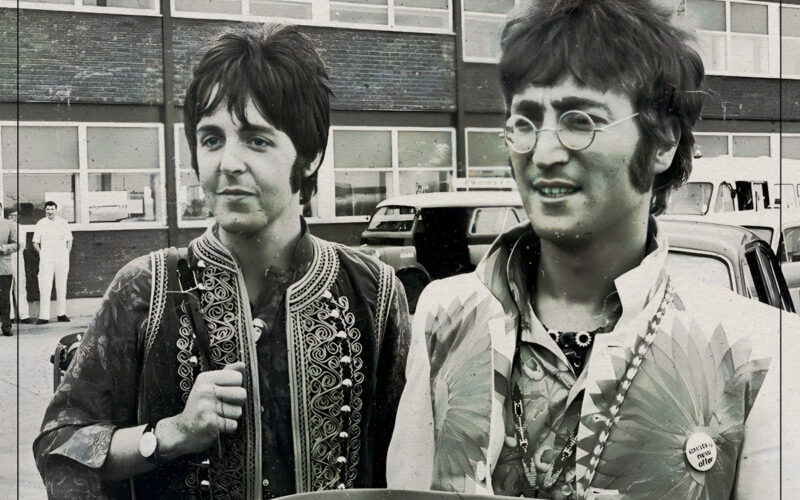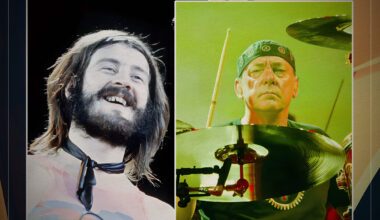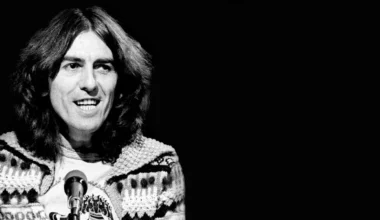It is easy to dismiss the break-up of a boy band as inconsequential. After all, surely it’s just music? But, in truth, it is far more than that; it is a part of an audience’s life being disturbed and changed. There’s something similar to be said about the demise of The Beatles. The band were such a staunch part of British culture that their break-up was hard to take, and the thought of the bandmates actively feuding was little more than a waking nightmare, mainly because the group were so resolutely perceived to be the best of friends.
To then rip that idyllic image away was crushing for many of the Fab Four’s fans. The group that had changed the landscape of British music, if not British culture in the eyes of the rest of the world, were now going their separate ways. However, underneath it all, the fights and legal battles, the group were just four mates from Liverpool and, like any four lads at the time, they shared troubles, but they also shared new experiences too.
The Beatles are as intrinsically linked to the surge of LSD as any other artist making their name in the swinging sixties. While some acts made it a part of their lexicon forever, for The Beatles, you can almost pinpoint the moment the Fab Four went on a trip. Many people have pointed to 1966’s Revolver as the start of the band’s jump into the mind-expanding worlds of LSD, as it certainly signified a change of stylistic direction, moving more cleanly away from pop song into poetic introspection.
While we can’t be sure of that, we can be certain of the first trip the band’s principal songwriters, Paul McCartney and John Lennon, ever shared together. And, as for many non-culture-shifting geniuses, the moment was one that they would likely share for decades to come in their minds—a truly shapeshifting experience that is hard to shake.
The story comes from the brilliant book Many Years From Now, which sees author Barry Miles sit down with McCartney for some lengthy conversations about the band that changed pop music forever. One particular point of interest was the substance that changed the band forever. As McCartney details the story, one theme stands out more than most: the friendship shared between him and John Lennon.

Paul McCartney was actually the last Beatle to take acid. George Harrison and John Lennon had taken the psychedelic long before McCartney when they were “dosed” by the ‘demon dentist’ John Riley in 1965. Debates rage on regarding who McCartney first took the drug with. While some say John Lennon, others claim it was the subject of ‘A Day In The Life’, Tara Browne. The fact is, by the summer of 1967, Macca wasn’t shy about letting people know that he, too, was a part of the cultural revolution known as LSD.
He partook in some widely publicised interviews where he defended his use of the drug. It was a mainstream platform for LSD, but many claimed McCartney was using it to grab a piece of the limelight and make himself seem more hip. The squarer member of the band didn’t want to appear cut out of the narcotic du jour and the line it drew between a new generation and the old establishment.
One intrinsic aspect of the Fab Four was two particular people, Lennon and McCartney. They weren’t only the two principal songwriters of the group, though Harrison would change that soon enough; they were also the counterpoints to one another’s creativity. Their relationship began on a level footing, but the race to the top made the duo’s relationship fractious. Despite the tension, they did share some extraordinary moments and some stranger ones, too.
In McCartney’s biography, the legendary Beatle detailed his experience with Lennon like two star-crossed poets: “And we looked into each other’s eyes, the eye contact thing we used to do, which is fairly mind-boggling. You dissolve into each other. But that’s what we did, round about that time, that’s what we did a lot,” the singer recalled, “And it was amazing. You’re looking into each other’s eyes and you would want to look away, but you wouldn’t, and you could see yourself in the other person. It was a very freaky experience, and I was totally blown away.”
“It [LSD] opened my eyes. We only use on-tenth of our brain. Just think of what we could accomplist if we could only tap that hidden part! It would mean a whole new world if the politicians would take LSD. There wouldn’t be any more war or poverty or famine.” Paul McCartney, 1967
In the book, McCartney also speaks about the effects of LSD and how he struggled to comprehend its power. “There’s something disturbing about it. You ask yourself, ‘How do you come back from it? How do you then lead a normal life after that?’ And the answer is, you don’t. After that you’ve got to get trepanned or you’ve got to meditate for the rest of your life. You’ve got to make a decision which way you’re going to go.” It was a decision many of us have faced.
Taking himself back to nature, McCartney complained: “I would walk out into the garden — ‘Oh no, I’ve got to go back in.’ It was very tiring, walking made me very tired, wasted me, always wasted me. But ‘I’ve got to do it, for my well-being.’ In the meantime, John had been sitting around very enigmatically, and I had a big vision of him as a king, the absolute Emperor of Eternity,” a moniker we imagine Lennon would certainly approve of.
Such visions can certainly occur out of nothing when taking the drug, but it is hard not to see the psychology behind McCartney’s unconscious dreaming up such a thing. However, it seemed to please him well enough. He added, “It was a good trip. It was great, but I wanted to go to bed after a while.”
“I’d just had enough after about four or five hours. John was quite amazed that it had struck me in that way. John said, ‘Go to bed? You won’t sleep!’”
It’s a frightening prospect, but one that those acquainted with the drug will know all too well: the desire to remove yourself from the group, but the knowledge that doing so will likely end up in some serious deep introspection. Still, McCartney was convinced: “‘I know that, I’ve still got to go to bed.’ I thought, now that’s enough fun and partying, now… It’s like with drink. That’s enough. That was a lot of fun, now I gotta go and sleep this off.”
Of course, McCartney wasn’t very clued up on the effects of the acid, “But of course, you don’t just sleep off an acid trip, so I went to bed and hallucinated a lot in bed. I remember Mal coming up and checking that I was all right. ‘Yeah, I think so.’ I mean, I could feel every inch of the house, and John seemed like some sort of emperor in control of it all. It was quite strange. Of course, he was just sitting there, very inscrutably.” Anyone who has shared a similar experience can relate to McCartney’s plight but also the anchorage he sought in Lennon. It’s a testament to their friendship that he would rely so heavily on his pal.
I can’t imagine that Paul McCartney, known for his meticulous consideration of detail, would particularly like the complete feeling of losing control that LSD can achieve, but it may well have had an input on his music. Let’s just say that McCartney’s favourite album of all time is a telling one. That album? Sgt. Pepper.






